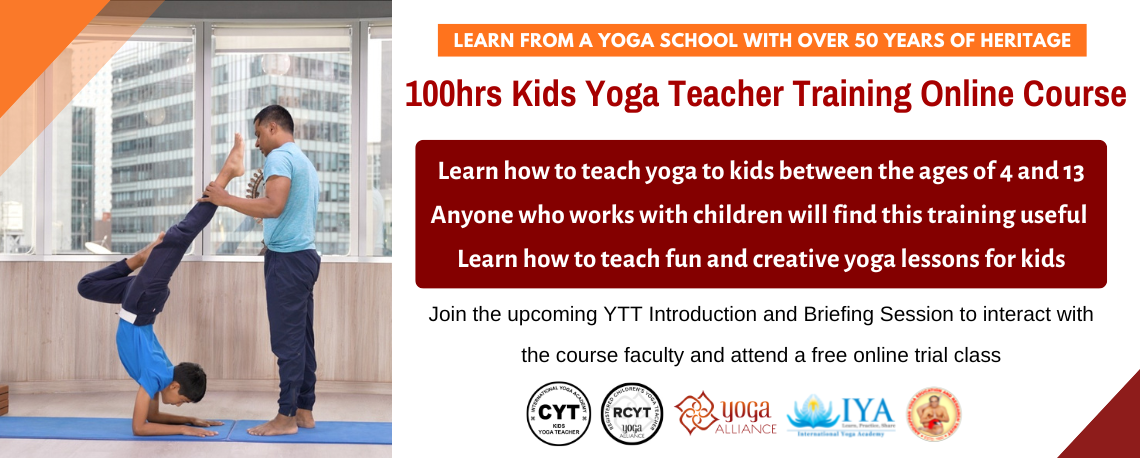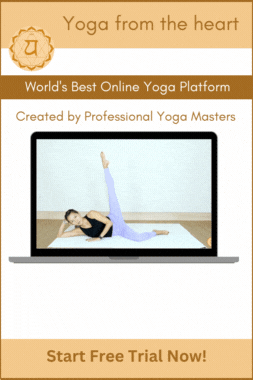Erin Patten is an extraordinary woman. From her days living and learning in Rio de Janeiro, Brazil, to graduating from the joint degree MBA/ MPP program at Harvard’s Business School and Kennedy School, to the sudden passing of her father while starting up her own buisness, Erin has turned to meditation through it all. Asana Journal sat down with Erin to learn more about her incredible life journey through past traumas and the creation of DāO Detroit
1.How were you first introduced to meditation and what were your original thoughts even before giving it a try?
I had always been intrigued by meditation thinking that one day I’ll be wise enough to achieve that level of spirituality — some arbitrary state of being. Before I started, meditation seemed like something only monks did or people who had the time and money to go on meditation retreats or extended trips to India. Until early last year, a friend invited me to join her in a 21-day guided meditation program hosted by Deepak Chopra and Oprah. The program is inspired by the Vedic tradition offering a new mantra and purpose statement each day. I thought to myself, “if ever there’s a chance to try it, why not do it now and complete the program. It’s only a few weeks!”
I have to be honest, that 21-day program was very, very hard for me. I would skip days. I would fall asleep during the sessions. I would think about everything, but the mantra. Wow. Looking back makes me realize how far I’ve come. Meditation is truly a practice. To date, I just work on improving my ability to be still and quiet my mind.
2.While living in Rio de Janeiro, Brazil, did you pick-up on any different types/forms of yoga or meditation?
While I was living in Rio, I traveled to Bahia to trek through the Chapada Diamantina National Park and visit Salvador, a city often considered to be the heart of Brazil. It was there that I was exposed to Candomblé (meaning “dance in honor of the god”). I grew up dancing and actually taught hip hop dance classes while living in Rio, so this spiritual practice resonated with me. Incorporating some aspects of Yoruba, Bantu, and Fon African societies, Candomblé can be considered “matriarchal” as women are regarded as “mothers of the holy one.” Women often spiritually manage Candomblé services and take on roles as priestesses.
Similar to eastern worship practices such as yoga where spirit energy is enhanced by movement, Candomblé worship takes the form of specially choreographed dances and hymns. Hundreds of years ago, practitioners incorporated a form of martial art within the dances, seamlessly moving from attacking positions to defensive ones, learning to quickly gauge how to react to their opponent. This dance is called capoeira and has become increasingly popular in the West as an art form. I practice capoeira on occasion; however, the knowledge gained from this tradition is still a huge part of me.
3.What is the biggest misperception about meditation you find?
I started telling my family about my journey with meditation and before I could even finish, I hear a sea of negative reactions like, “Oh, I could never do that” or “I don’t have the patience for that.” And I believe that the biggest misperception is peoples’ own doubts about their ability to do it and do it consistently. No one needs their own guru or special abilities to practice meditation. I believe it is truly an individual journey and individual practice that anyone can master.
4.How does the practice of meditation help you on a daily basis to heal from past traumas, such as losing your father unexpectedly recently?
Practicing meditation helps me to keep my emotions in check and fundamentally, achieve more inner balance. When my father transitioned six months ago, I believe I would have lost my mind without meditation. At that time I would combine meditation with prayer rituals and the combination brought me an indescribable peace. My family and my career depend on me and my ability to be thoughtful, be clear-headed and do whatever work needs to be done. There really was no time for sobbing and feeling sorry for myself.

Meditation gave me that energy and strength to persevere in moments where my physical self wanted to shut down and give up. With daily meditation and tapping into my spirit energy, I was able to get through some of my life’s most challenging days.
5. How important is an active, healthy lifestyle to you overall?
It’s the number one priority in my life. I’m so conscious about everything related to my body, my temple and living a healthy lifestyle. I monitor the food I eat, products I consume, breathing habits, sleeping schedule… I could go on and on. I’m a huge advocate of the Kaizen Japanese business philosophy of continuous improvement. I look at my life in this way. Just make each meal, each activity, each interaction, each day better than the last.
6.You are now living in the United States and are the co-CEO / co-founder of DāO Detroit, an all natural haircare company that offers a holistic and family-oriented mind and body healing approach to the industry. Explain more about why this approach is important to you personally?
It’s important to share my story. I’ve been through so many different educational and professional experiences, lived all over the world, and overcome some especially challenging hurdles. It is my duty to share that journey and what I’ve learned with others. DāO is an acronym for Defy All Odds and we promote the “Own Your Identity” message through our products and the work we do in communities. Defy All Odds would mean nothing if I didn’t have the personal experience to back it up.
In my first job out of college, my manager told me that my natural hair was inappropriate for the work environment and violated company policies. This set me on a career course of severe anxiety and insecurity as I desperately attempted to change my hair texture to not only fit in at work, but greater society, in general. It wasn’t a healthy time for me as I sought acceptance and approval from those around me, instead of owning who I was, curly hair and all! I began to understand the value and power in this ownership and I want to share that with the world.
7.Do you feel that meditation overall has helped you as a business women and the decisions you have had to make?
100% Yes! I must admit that I’m a different person. This past year has been one of tremendous growth and I’m more courageous than ever. Meditation has helped me see my true self and not just my resume. I’m so much more than that. With that increased level of confidence and trust in self, I have more conviction in the decisions that I make. I understand that the small things, good and bad, all add up to something much greater. So I don’t find myself getting all bent out of shape over mistakes or “failures” because every experience is a learning opportunity, an opportunity to do better.
8.Is it hard to find time to meditate with your busy schedule corunning the company?
Not anymore. In the beginning, I’d make excuses and tell myself I’ll do it later in the day or I’ll do it doubletime tomorrow. Now, meditation for me is like eating. Some days I fast, but most days I’m eating regularly! I learned that I had to make it part of my daily routine like brushing teeth and showering.
Before I practiced meditation, I used to have a bad habit of checking my phone first thing in the morning to read emails, respond to text messages or laugh at Instagram memes. Now, I grab my phone to turn off my alarm and prepare myself to meditate. It’s the first thing I do to start my day.
9.Where is your favorite place to meditate?
I love to meditate at home in my sun room. I have a special rug that I use and everything. I can oftentimes hear nature from my windows, but other times I hear traffic. It’s fine either way because it’s all about being still and getting in tune with the environment around me.
10.What advice would you like to share with other practitioners based on your personal experience or others looking at getting into the same routines on the health-front as you?
Be patient. The key to practicing meditation is “the practice” and not the meditation itself. It’s the repeated or regular activity of meditation that brings you all the benefits. So naturally, you won’t see immediate results. This can be challenging in a world of instant gratification, but know that anything worth having is worth waiting for. Be patient with yourself whether you’re first learning how to meditate, or trying to lose/gain weight, or growing your hair after some bad damage.

No matter the circumstance, when it comes to being the best, healthiest you, you have to be patient and be kind to you.
11.Do you also follow a strict diet at all? Or what are some of your favorite health foods?
I’m pretty strict about not eating any meats — poultry, beef or pork. I love seafood though, so I’m not quite ready to be 100% vegetarian. However, I keep my kitchen full of fresh vegetables, fruits, and beans and rice. The food journey is just that, a journey. I started with no alcohol, then no meats, and I’m planning to become 100% vegan one day. However, I have to go at my own pace and do it on my own terms.
12.What are your future dreams and goals both professionally and personally?
My favorite thing to do is dreaming about my future, so this is such an awesome question. I would love to be able to explore a professional career in music. I have recently started emceeing, singing and DJing after playing the violin for 16+ years. I grew up performing in chamber music groups and symphonies, but never as an individual musician or artist. To have the chance to pursue that and earn a living would be a dream come true Additionally, I love design and after a 6+ year career in fashion, I dream about the opportunity to collaborate with a fashion house, design a clothing line, have a proper presentation, and then see people buy it and wear it. #Goals
Personally, I dream about the positive impact I can have on people’s lives across the world through my business efforts and community engagement. Doing what I must do to fulfill my purpose here on earth.
13.If you could change one thing in the world, what would it be?
I’d want everyone to speak the same language where every emotion or thought could be perfectly conveyed. We are so limited by the English language, the tradition of politeness and lack of words to effectively express ourselves to each other. It gets even more confusing as thoughts and sentiments get lost in translation across other languages and cultural traditions. Imagine, if we could all speak the same language in tones that everyone could clearly comprehend. There would likely be a lot less drama and a lot more peace.

















 Other
Other